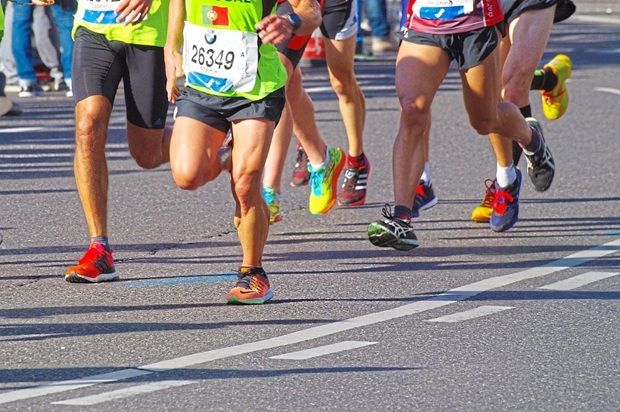EXERCISE has long been celebrated as one of the most effective ways to prevent cancer and promote overall health.
Regular physical activity is consistently linked to lower cancer rates across multiple studies.
However, a recent study has raised an unexpected question about whether extreme endurance training might carry its own risks.
Does long distance running increase your risk of colon cancer?
Verdict:

POTENTIALLY TRUE (for extreme endurance runners)
A groundbreaking study has revealed a potential link between extreme endurance exercise and increased risk of advanced colon cancer in younger adults, though experts stress the findings are preliminary and require further research.
Dr Timothy Cannon, an oncologist at Inova Schar Cancer Institute in Virginia, launched the study after noticing a disturbing pattern: multiple ultramarathoners were presenting with advanced-stage colorectal cancer.
The study recruited 100 long-distance runners aged 35 to 50 who had completed either at least five marathons or two ultramarathons to undergo colonoscopy screening.
Participants with hereditary cancer syndromes or inflammatory bowel disease were excluded to focus on the potential impact of endurance exercise alone.
The results were striking: almost 50% of participants had polyps, whilst 15% had advanced adenomas – pre-cancerous growths with a high chance of progressing into cancer.
By comparison, recent studies suggest that only around 4.5% to 6% of adults in their late 40s in the general population have such advanced adenomas.
The findings even exceeded the 12% prevalence seen amongst Alaska Natives, who are unusually prone to colon cancer.
“This is the first prospective study we know of to explore whether exercise-induced intestinal stress – specifically bowel ischemia from long-distance running – might increase cancer risk,” Dr Cannon said.
“While the results don’t prove causation, they strongly suggest that intense endurance exercise could be a meaningful risk factor for colorectal cancer and warrants further study,” he added.
The mechanism behind this potential link may involve exercise-induced gastrointestinal injury, believed to be associated with reduced blood flow to the intestines during long-distance running.
During intense endurance exercise, blood is diverted from the colon to fuel legs and other muscles, temporarily starving gut tissue of oxygen.
This condition, known as ischaemic colitis, can cause swelling, bleeding and is often dismissed by runners as normal “runner’s trots” or “runner’s colitis”.
“There’s no proof that ischaemic colitis causes cancer,” Dr Cannon said.
“But it’s not hard to imagine how it would. When you have so many cells dying and then growing back in a disorderly and unregulated way, there are lots of opportunities for DNA replication errors.”
Repeated cycles of cell damage and repair could theoretically create conditions that allow mutations to develop, leading to cancer.
However, experts urge caution in interpreting these results, as the study was small, had no control group of non-runners and has not yet been peer-reviewed or published in a medical journal.
Dr Marianna Zeichen of Jackson Medical Group emphasised that “the sample size of 100 participants is limited, and the findings demonstrate an association rather than a causal relationship”.
The correlation could be due to several factors, such as common lifestyle habits amongst long-distance runners or family medical histories, which weren’t fully explored.
Importantly, this research applies only to extreme endurance athletes, not regular exercisers or moderate runners.
Epidemiological studies consistently show that physically active people have lower cancer incidence, including fewer colon polyps and lower rates of colorectal cancer.
“I definitely don’t want people to come away saying exercise is not good, because it is good,” Dr Cannon stressed.
“The question is whether there is a dose of exercise that is so high that it actually increases your risk of colon cancer. And I believe there is.”
Dr Cannon advises that any bleeding from runners should be a reason to get a colonoscopy, not something to be ignored or dismissed as normal.
The findings were presented at the 2025 American Society of Clinical Oncology Annual Meeting in Chicago and received widespread media coverage, including in The New York Times.
References:
1. https://ascopubs.org/doi/10.1200/JCO.2025.43.16_suppl.3619
3. https://www.sciencefocus.com/news/ultra-running-colon-cancer
5. https://www.advisory.com/daily-briefing/2025/08/25/marathon-cancer
6. https://jacksonhealth.org/marathons-and-extreme-running-can-it-increase-your-risk-of-colon-cancer/
